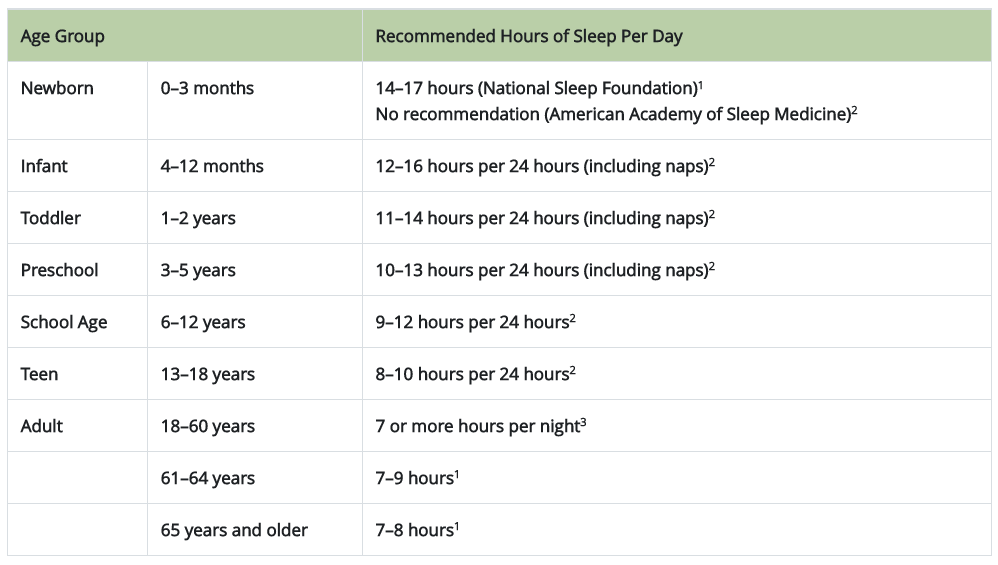Sleep is essential for our overall well-being. While diet and exercise get a fair share of the media limelight regarding physical health, sleep deserves a more prominent role onstage.
Benefits of Healthy Sleep Habits
The reasons why we sleep are still somewhat mysterious. However, the combination of medical research and brain imaging reveals some of the many ways sleep benefits children and adults, including:
- Improved immune system function
- Enhanced ability to focus, concentrate and stay on task
- More energy throughout the day
- Higher metabolism
- Better mood and emotional regulation
- Reduction in behavioral issues and emotional outbursts
- Improved hormone and blood sugar balance (fewer sugar cravings!)
As long as your family makes healthy resolutions for the New Year, the team at PANW encourages you to add “create healthy sleep habits” to the list.
Tips For Getting a Good Night’s Sleep
Here are our top tips for getting a good night’s sleep.
1. Understand how much is enough
The first step is to create sleep plans or goals based on everyone’s age and sleep needs. Children need more sleep than adults, but specific points in children’s development also increase the amount of sleep a child needs. For example, teenagers are going through pretty dramatic changes in their brains and bodies, which is one reason they increase sleep time to 10 or 11 hours per day.
Use this table of sleep needs by age from the CDC as a reference for your family:
2. Get plenty of physical (and mental) exercise
Sedentary lifestyles aren’t good for healthy sleep habits. If your body and brain aren’t physically tired enough, it inhibits your ability to fall asleep. Getting plenty of daily exercise is one way to support healthy sleep habits for the whole family. If you don’t have time to get to the gym, focus on incorporating exercise into everyday activities to get the limbs moving and your heart rate up.
3. Maintain consistent sleep/wake times as much as possible
Inconsistent sleep/wake times affect your body’s natural circadian rhythm. Instead of sleeping in on weekends, get up close to your weekday wake-up time to maintain a consistent schedule. Use a cat nap in the middle of the day (no more than 20 to 30 minutes) to refresh your body and energy levels if needed.
4. Cut off screen time at least 30 minutes before bedtime
The human brain is still attached to the natural day and night cycles. Without the dark, we don’t produce the levels of melatonin and other sleep-friendly biochemicals that help our brains and bodies relax, unwind, fall asleep, and stay asleep.
Make it a family practice to turn off phones and gadgets well before bedtime (at least 30 minutes prior is ideal). Plug them in at a charging station outside the bedroom (children should use old-fashioned alarm clocks rather than phones). Then, close the curtains/blinds to block outside light, dim house lights, and create a relaxing atmosphere to help the body get into sleep mode.
BONUS TIP: Spending more time outdoors helps to keep the body’s natural circadian rhythm in sync because our bodies love sunshine, fresh air, and physical movement. Make it a practice to get outdoors together as a family.
5. Avoid stimulants in the afternoon
Most people have no idea how sensitive they are to sugar, caffeine, and other stimulants. And did you know that even decaf black/green teas and coffee still have small amounts of caffeine in them? These stimulants remain active in your body for hours after consuming them, meaning that a 3:00 pm latte or mocha may keep you up after you hit the sack.
Stimulants that negatively impact the ability to fall asleep (and stay asleep) include:
- Caffeine (present in sodas, teas, coffee/expresso, and chocolate)
- Chocolate
- Alcohol
- Sugary treats
- Recreational drugs
- Limit or avoid stimulants for at least four to six hours (or more) before bedtime.
6. Create relaxing bedtime routines
In our post about the “back to school routine,” we mentioned the importance of healthy sleep habits. If your family has yet to get into the groove, now’s the time to start.
Babies aren’t the only ones who benefit from consistent bedtime routines – older children, teens, and adult bodies prefer them, too! Create a relaxing bedtime routine that helps your brain and body understand that it’s sleepy time. This may include:
- A warm shower/bath
- Enjoy a warm /hot mug of milk with a dollop of honey, herbal tea, or water with lemon and honey
- Playing relaxing music
- Diffusing calming essential oils into your bedroom (lavender, ylang-ylang, chamomile, or sleep-specific blends)
- Slow stretching while taking deep breaths
- Keeping bedrooms screen-free
- Dimming lights (using red bulbs in nightlights as they don’t disrupt the brain’s sleep hormone process)
Modeling your wind-down process helps children understand it’s a family affair.
7. Practice stress management
Worry, anxiety, and stress significantly contribute to restless nights. Make stress management a part of your family’s work together. Try:
- Writing all their worries on a pad of paper by the bed, so they don’t have to cycle around in the monkey mind.
- Creating a “worry box” into which everyone puts their worries, letting them work themselves out through the subconscious.
- Learning how to breathe through worry and stress.
- Following guided imagery that anchors you back into your body while putting the worries/stresses back into the earth/ocean/sky/locked boxes/etc.
- Starting a gratitude journal. Sometimes writing about what we’re thankful for helps to keep things in perspective, shrinking worries and stressors.
The more relaxed and calm you are before bed, the better your chance of uninterrupted sleep.
Is Your Child Struggling to Go to Sleep or Stay Asleep?
If your child is having difficulty falling asleep or staying asleep, Pediatric Associates of the Northwest wants to know. We’ll help you get to the bottom of “why” sleep is an issue and create a personalized sleep plan to get your kiddo back on track. Contact us to schedule an appointment.






